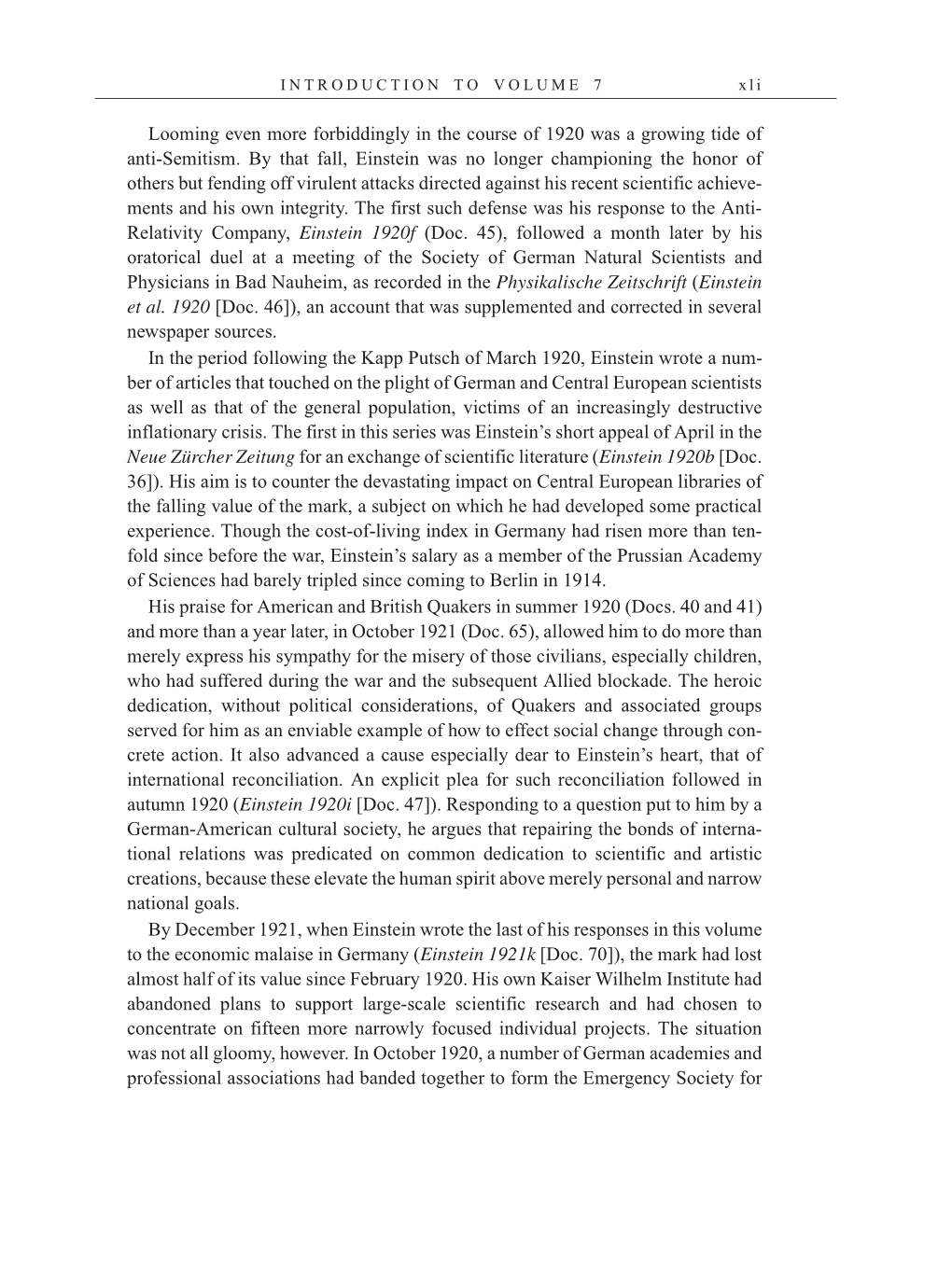I N T R O D U C T I O N T O V O L U M E 7 x l i
Looming even more forbiddingly in the course of 1920 was a growing tide of
anti-Semitism. By that fall, Einstein was no longer championing the honor of
others but fending off virulent attacks directed against his recent scientific achieve-
ments and his own integrity. The first such defense was his response to the Anti-
Relativity Company, Einstein 1920f (Doc. 45), followed a month later by his
oratorical duel at a meeting of the Society of German Natural Scientists and
Physicians in Bad Nauheim, as recorded in the Physikalische Zeitschrift (Einstein
et al. 1920 [Doc. 46]), an account that was supplemented and corrected in several
newspaper sources.
In the period following the Kapp Putsch of March 1920, Einstein wrote a num-
ber of articles that touched on the plight of German and Central European scientists
as well as that of the general population, victims of an increasingly destructive
inflationary crisis. The first in this series was Einstein’s short appeal of April in the
Neue Zürcher Zeitung for an exchange of scientific literature (Einstein 1920b [Doc.
36]). His aim is to counter the devastating impact on Central European libraries of
the falling value of the mark, a subject on which he had developed some practical
experience. Though the cost-of-living index in Germany had risen more than ten-
fold since before the war, Einstein’s salary as a member of the Prussian Academy
of Sciences had barely tripled since coming to Berlin in 1914.
His praise for American and British Quakers in summer 1920 (Docs. 40 and 41)
and more than a year later, in October 1921 (Doc. 65), allowed him to do more than
merely express his sympathy for the misery of those civilians, especially children,
who had suffered during the war and the subsequent Allied blockade. The heroic
dedication, without political considerations, of Quakers and associated groups
served for him as an enviable example of how to effect social change through con-
crete action. It also advanced a cause especially dear to Einstein’s heart, that of
international reconciliation. An explicit plea for such reconciliation followed in
autumn 1920 (Einstein 1920i [Doc. 47]). Responding to a question put to him by a
German-American cultural society, he argues that repairing the bonds of interna-
tional relations was predicated on common dedication to scientific and artistic
creations, because these elevate the human spirit above merely personal and narrow
national goals.
By December 1921, when Einstein wrote the last of his responses in this volume
to the economic malaise in Germany (Einstein 1921k [Doc. 70]), the mark had lost
almost half of its value since February 1920. His own Kaiser Wilhelm Institute had
abandoned plans to support large-scale scientific research and had chosen to
concentrate on fifteen more narrowly focused individual projects. The situation
was not all gloomy, however. In October 1920, a number of German academies and
professional associations had banded together to form the Emergency Society for
